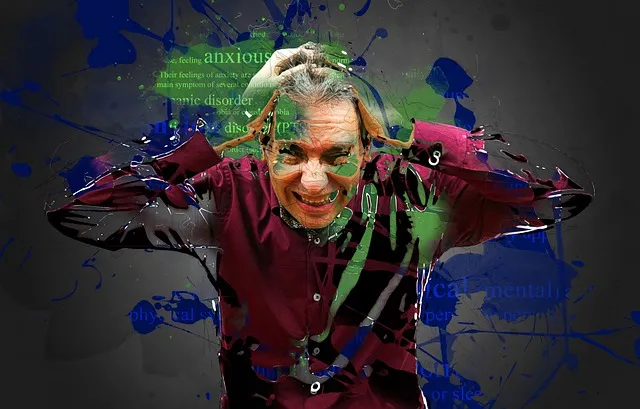Cultural sensitivity is crucial in mental healthcare, addressing patient diversity through tailored care based on individual cultural beliefs, values, and practices. In Castle Rock, where Kaiser therapists are renowned, understanding local cultural nuances is essential for effective treatment. This consideration significantly impacts help-seeking behaviors and symptom interpretation, leading to improved patient engagement, clinical outcomes, and provider well-being. Kaiser's commitment to cultivating culture-competent therapists through comprehensive training programs ensures high-quality care for diverse communities like Castle Rock, affirming their reputation of having good therapists who understand and serve these communities effectively.
In a diverse society like Castle Rock, it’s essential for mental healthcare practices to embrace cultural sensitivity. Understanding and respecting patients’ cultural backgrounds can significantly impact treatment outcomes. This article explores key aspects of cultural sensitivity in mental healthcare, including why it matters, the role of training, and best practices exemplified by Kaiser. Discover how these strategies ensure inclusive care and foster positive relationships between therapists and diverse patient populations, potentially enhancing Castle Rock residents’ access to effective therapy.
- Understanding Cultural Sensitivity in Mental Healthcare
- Why It Matters: The Impact on Patient Outcomes
- Training and Education for Culture-Competent Therapists
- Best Practices for Providing Inclusive Care at Kaiser
Understanding Cultural Sensitivity in Mental Healthcare

In the realm of mental healthcare, cultural sensitivity is a cornerstone that bridges the gap between diverse patient backgrounds and quality treatment. It’s about recognizing and respecting individual cultural beliefs, values, and practices, ensuring every patient receives care tailored to their unique needs. Understanding cultural sensitivity means going beyond geographical boundaries; it delves into the intricate web of customs, traditions, and historical contexts that shape people’s mental health experiences. For instance, addressing mental illness within communities like Castle Rock, where Kaiser therapists are known for their expertise (as per local reviews), requires a nuanced approach, considering the specific challenges and stigma reduction efforts unique to each cultural group.
The importance of this sensitivity is underscored by the impact of cultural factors on seeking help and treatment for mental illness. It can influence help-seeking behaviors, preferred therapeutic approaches, and even the interpretation of symptoms. By integrating cultural competency into their practice, healthcare providers can foster better patient engagement, improve clinical outcomes, and mitigate burnout prevention strategies for themselves. Adopting mind over matter principles, where professionals prioritize self-care alongside their patients’ well-being, becomes essential in navigating this complex landscape.
Why It Matters: The Impact on Patient Outcomes

In the realm of mental healthcare, cultural sensitivity is a game-changer that can significantly impact patient outcomes. Castle Rock does Kaiser have good therapists? The answer lies in their ability to navigate diverse cultural landscapes and provide tailored care. In a world where folks come from various ethnic backgrounds, religions, and socio-economic statuses, mental health practitioners must be equipped with the knowledge and skills to understand and respect these differences. This is not just about providing equal access; it’s about delivering effective treatment that considers each patient’s unique cultural context.
When therapists demonstrate cultural sensitivity, they create a safer and more welcoming environment for patients. This can lead to improved engagement in therapy, higher rates of adherence to treatment plans, and ultimately better mental health outcomes. For example, compassion cultivation practices and self-awareness exercises, popularized by organizations like the Stress Management Workshops, can foster empathy and understanding between therapists and clients from different cultural backgrounds. In light of this, it’s essential for mental healthcare institutions to ensure their therapists are trained in cultural sensitivity, thereby enhancing patient satisfaction and care quality, as evidenced by positive transformations in patients’ lives.
Training and Education for Culture-Competent Therapists

In today’s diverse society, training and education play a pivotal role in cultivating culture-competent therapists. Institutions like Castle Rock’s Kaiser network are renowned for providing comprehensive programs that empower mental health professionals to navigate the intricate landscape of cultural sensitivity effectively. These programs often incorporate workshops, seminars, and ongoing supervision sessions focused on enhancing therapists’ understanding of diverse communities, their unique challenges, and coping skills development. By fostering empathy and compassion cultivation practices, these educational initiatives strive to reduce the mental illness stigma while promoting inclusive therapeutic environments.
The journey towards becoming a culture-competent therapist involves continuous learning and self-reflection. Kaiser’s commitment to such training ensures that not only do their therapists excel in treating diverse populations but also effectively support clients from various ethnic, cultural, and socioeconomic backgrounds. This holistic approach not only benefits individual clients but contributes to more inclusive mental healthcare practices across the board, ensuring everyone receives the understanding and care they deserve.
Best Practices for Providing Inclusive Care at Kaiser

At Kaiser, providing inclusive care is a top priority, with a focus on ensuring all patients, regardless of their cultural background, receive the best possible mental healthcare. Best practices include integrating culturally competent therapists who understand and appreciate diverse communities, such as those in Castle Rock. These therapists are trained to deliver evidence-based therapies that adapt to individual needs, addressing specific cultural beliefs, values, and experiences.
Additionally, Kaiser offers a range of support services like Social Skills Training and Stress Management Workshops, designed to cater to the unique challenges faced by various cultural groups. They also encourage patients to develop self-care routines tailored to their personal and cultural identities, promoting better mental health outcomes. This holistic approach ensures that care is not only culturally sensitive but also empowering, enabling patients to thrive in a supportive environment.
Cultural sensitivity in mental healthcare is not just a preference, but an essential practice that significantly improves patient outcomes. As Castle Rock residents seek therapy, it’s crucial to consider the diverse cultural backgrounds of patients and ensure Kaiser has good therapists who can provide inclusive care. Training and education play a pivotal role in equipping therapists with the skills to navigate these complexities, mirroring best practices outlined for delivering effective, culture-competent care within the organization. By embracing these strategies, Kaiser can foster an environment where every patient feels understood and supported on their journey to mental wellness.

